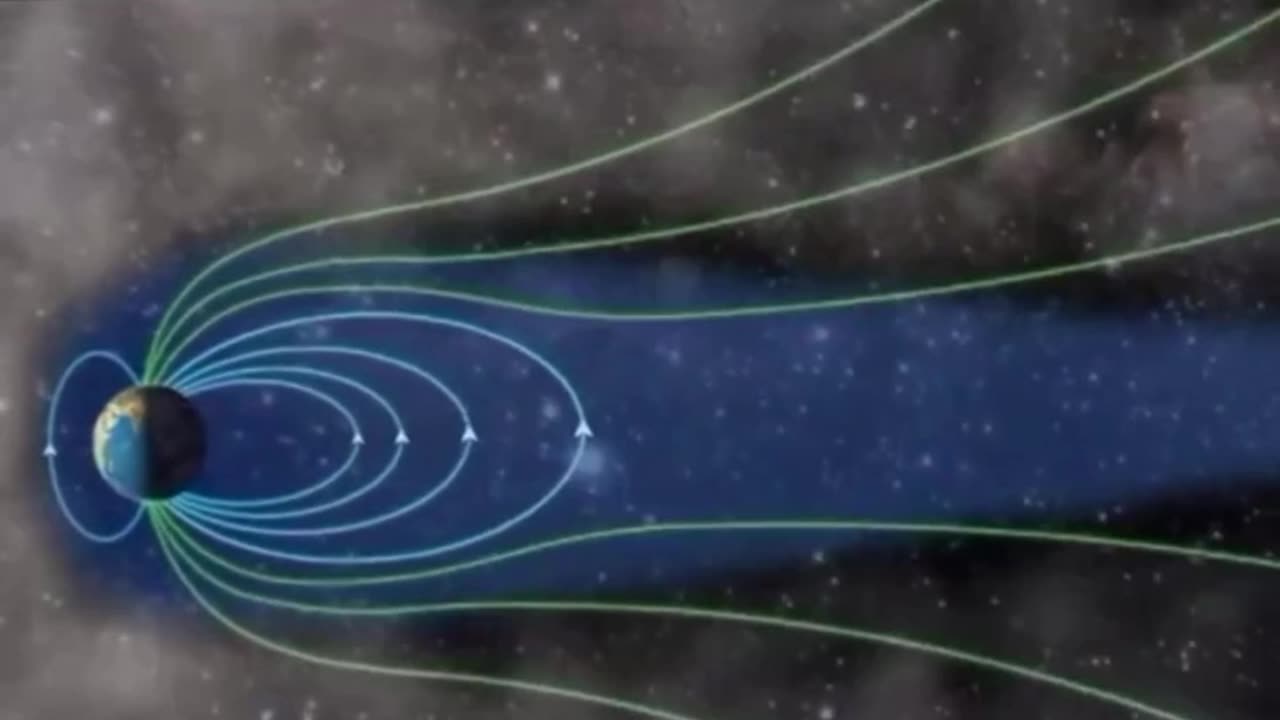Premium Only Content

How different planets react to Solar Storm?
Different planets in our solar system can react differently to solar storms, depending on factors such as their atmosphere, magnetic field, and proximity to the Sun. Here are some general ways in which different planets can be affected:
1. Earth: Solar storms, specifically coronal mass ejections (CMEs) and solar flares, can impact Earth's magnetic field and cause geomagnetic storms. These storms can disrupt radio communications, satellite operations, and power grids. They can also lead to beautiful auroras (Northern and Southern Lights) at high latitudes.
2. Mercury: Mercury has a weak magnetic field and a very thin atmosphere, so its response to solar storms is relatively minimal. However, increased solar activity can cause changes in the planet's exosphere (thin outer atmosphere) and induce temporary magnetic events.
3. Venus: Venus has a thick atmosphere composed mainly of carbon dioxide, which protects it from many direct effects of solar storms. However, fluctuations in the solar wind can lead to disturbances in the planet's ionosphere.
4. Mars: Mars has a very thin atmosphere and a weak magnetic field, so its response to solar storms is limited. However, increased solar activity can affect the planet's ionosphere and cause minor disruptions in communication systems used by robotic rovers.
5. Jupiter: Jupiter has a strong magnetic field, and its intense radiation belts trap charged particles. Solar storms can cause the planet's auroras to brighten and intensify. Jupiter's moon Io, which has active volcanoes, can also experience increased volcanic activity during solar storms.
6. Saturn: Saturn has a strong magnetosphere and displays impressive auroras at its poles. Solar storms can cause these auroras to become more active and dynamic.
7. Uranus and Neptune: These ice giant planets have their own unique magnetic fields and are primarily affected by their internal processes. Solar storms might have limited direct impact on them due to their significant distance from the Sun.
It's important to note that our understanding of how planets react to solar storms is continually evolving, and new discoveries are being made as we gather more data from space missions and observations.
-
 LIVE
LIVE
SynthTrax & DJ Cheezus Livestreams
13 hours agoFriday Night Synthwave 80s 90s Electronica and more DJ MIX Livestream THE FLOATING WORLD / Variety Music Edition
148 watching -
 LIVE
LIVE
Eternal_Spartan
9 hours ago🟢 Eternal Spartan Plays Destiny 2 | FPS Friday | | USMC Veteran
110 watching -
 2:04:11
2:04:11
MattMorseTV
4 hours ago $8.83 earned🔴The UK just hit ROCK BOTTOM.🔴
36.6K101 -
 LIVE
LIVE
iCheapshot
2 hours agoBack From Vacation! | Checking Out Skate Maybe Some Boarderlands 4
170 watching -
 LIVE
LIVE
Jorba4
1 hour ago🔴Live-Jorba4- Off The Grid w/ The TRIBE
14 watching -
 54:43
54:43
Glenn Greenwald
5 hours agoGlenn Reacts to Netanyahu's UN Speech; PLUS: Q&A on Trump's Russia/Ukraine Policy, the Tom Homan Investigation, and More | SYSTEM UPDATE #522
54.2K37 -
 LIVE
LIVE
MissesMaam
1 hour ago*Spicy* Friend Friday with Mally_Mouse and Friends!! 💚✨
49 watching -
 43:54
43:54
Donald Trump Jr.
3 hours agoJames and the Giant Breach, Plus Explosive J6 Revelations | TRIGGERED Ep.277
144K162 -
 LIVE
LIVE
MadHouse_
3 hours agoFRIEND FRIDAY! - Garys Mod ? im pretty sure im gonna lose at this game
85 watching -
 2:26:51
2:26:51
blackfox87
2 hours agoBorderlands Grind Continues | PREMIUM CREATOR | #DisabledVeteran
19K1